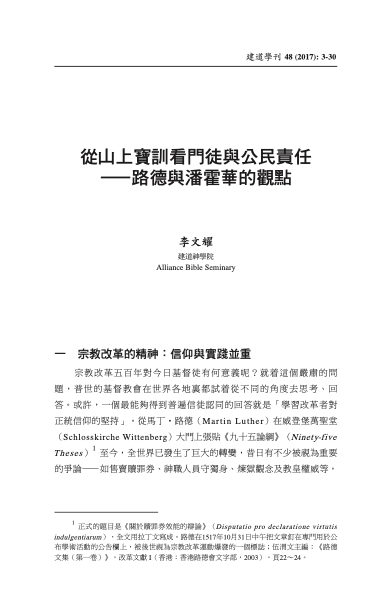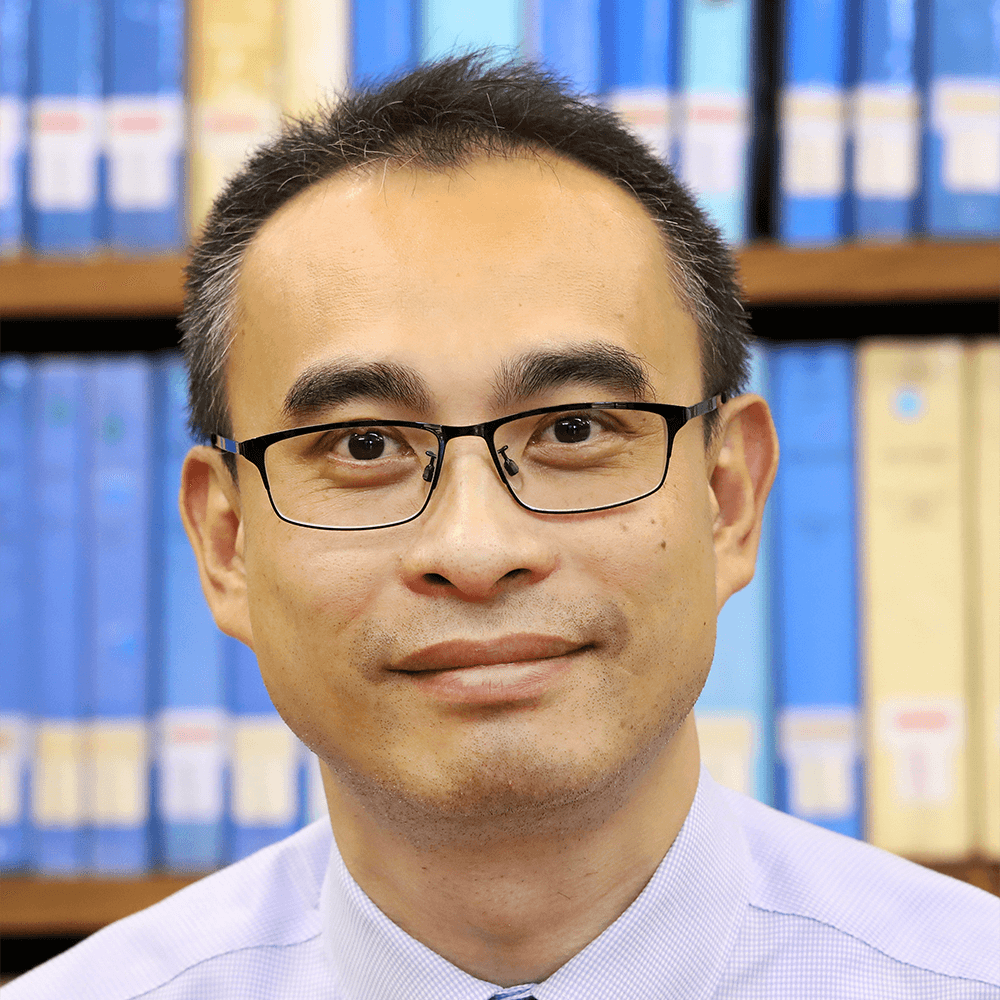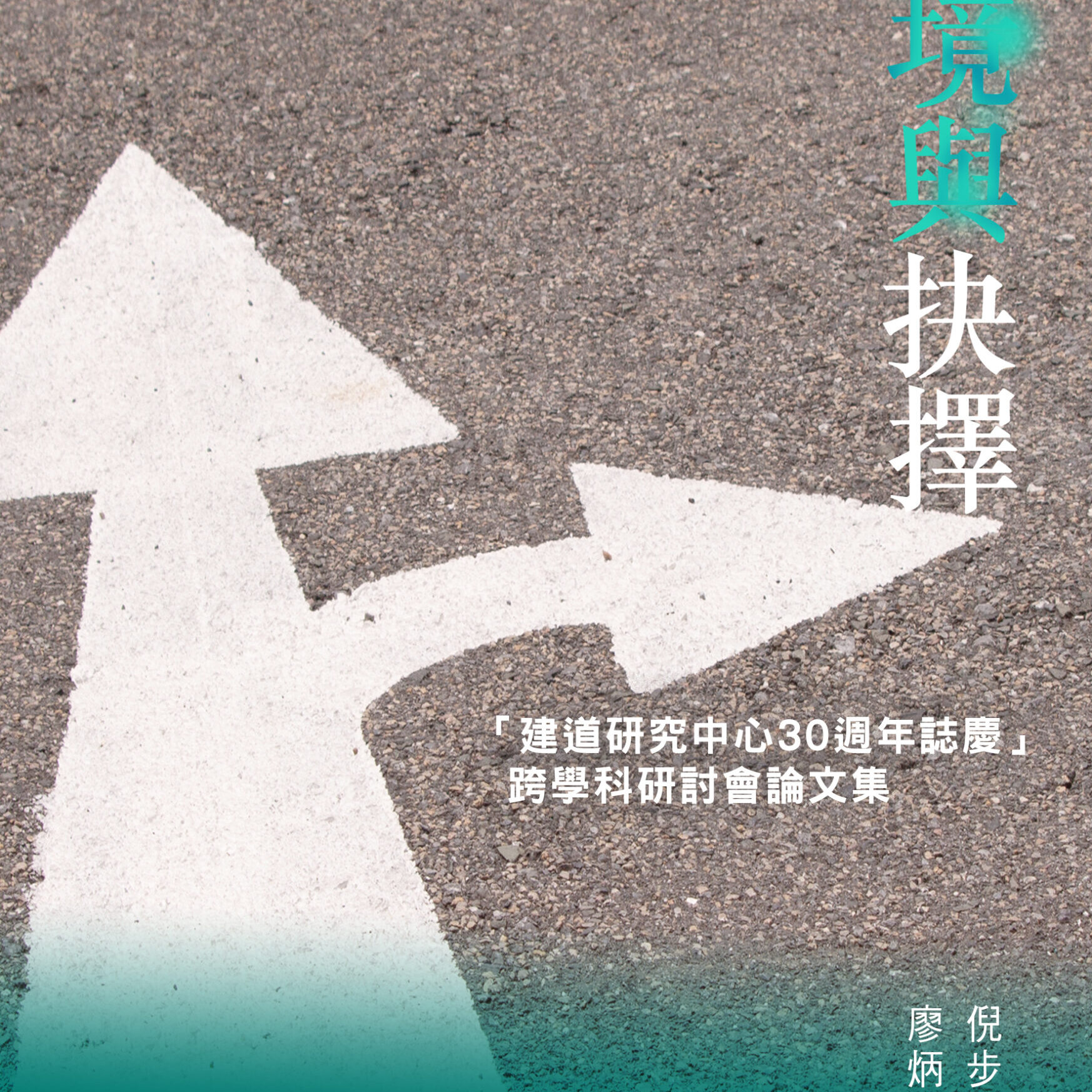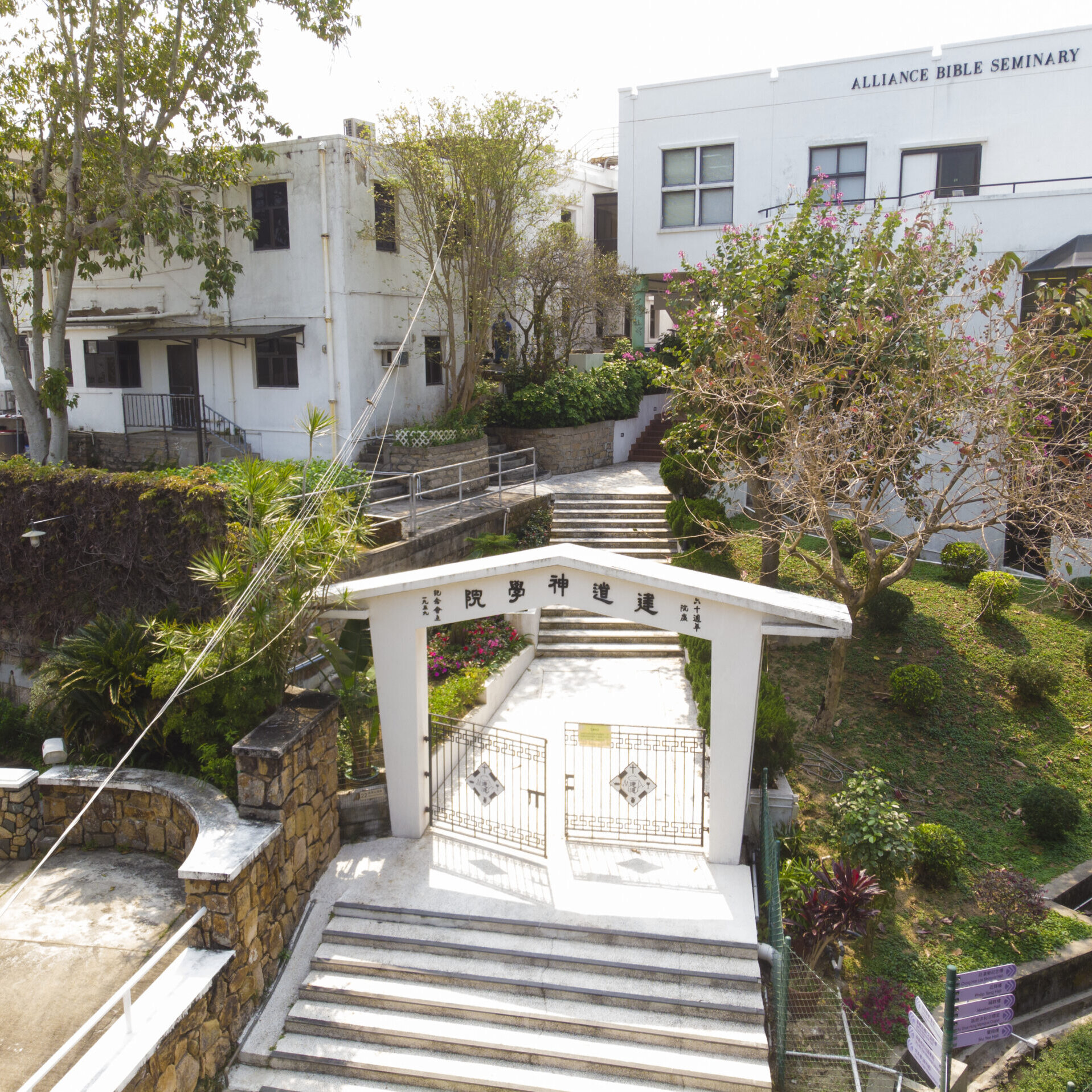從山上寶訓看門徒與公民責任——路德與潘霍華的觀點/李文耀
李文耀
撮要
本文嘗試通過分析馬丁‧路德與潘霍華的思想,指出後者如何在他的時代裏貫徹宗教改革者的精神,同時又突破了傳統思想的限制。文章特別選用山上寶訓作為切入點,目的是要顯出信仰的正統性與出於正統信仰的實踐都在宗教改革的議程內,並且隨着時代的轉變有所更新變化。這方面在潘霍華神學內部的發展尤為明顯。作為一個信義宗神學家,潘霍華一直嘗試在路德的兩個國度觀下尋求突破,直至最後想到以「一個實在」來統合地思想門徒與公民、教會與世界的問題。在一個對公民責任有強調訴求的時代內,潘霍華的看法能給予基督徒更多想像和行動的空間。在社會上,基督徒要作良好的公民,與基督的實在一致。奉公守法並不是門徒唯一的考慮。
ABSTRACT
This article attempts to show how, through the analysis of Martin Luther and Bonhoeffer’s thought, the latter followed the spirit of the reformers and at the same time made a breakthrough against traditional thinking. In particular, by focusing on different interpretations of the Sermon of the Mount, the article also shows that both orthodoxy and orthopraxis are on the agenda of Reformation and must be renewed in the change of times. This is particularly evident in the internal development of Bonhoeffer’s theology. As a Lutheran theologian, Bonhoffer had been trying to make a breakthrough under Luther’s doctrine of two kingdoms until at last he found the concept of‘one reality’ as a clue to think holistically the problems of discipleship and citizenship as well as church and the world. In an era of raising concerns about civic responsibility, the ideas of Bonhoeffer could give more room for the Christians to imagine and act responsibly. In the society, Christians ought to become good citizens in accordance with the reality of Christ. Law-abiding is not the only consideration of the disciples.
原載於《建道學刊》48期(2017年7月),頁 3-30。
作者簡介
李文耀
張慕皚教席教授
候任副院長 (學術)
教務長
最新文章
新手牧者研究計劃(三):新手牧者的身心靈狀態 / 盧慧儀
2025 年 11 月 19 日
【教牧退休】好好理財 退而不憂 / 林本利
2025 年 10 月 1 日
【教牧退休】生前身後的管理:平安三寶 / 陸文慧
2025 年 10 月 1 日
編輯精選
[電子書]困境與抉擇:「建道研究中心30週年誌慶」跨學科研討會論文集/廖炳堂、倪步曉主編
2025 年 1 月 2 日
從梧州到長洲:建道神學院125年的挑戰與恩典 / 陳智衡
2023 年 10 月 1 日
微小教會的見證/高銘謙
2023 年 6 月 1 日








